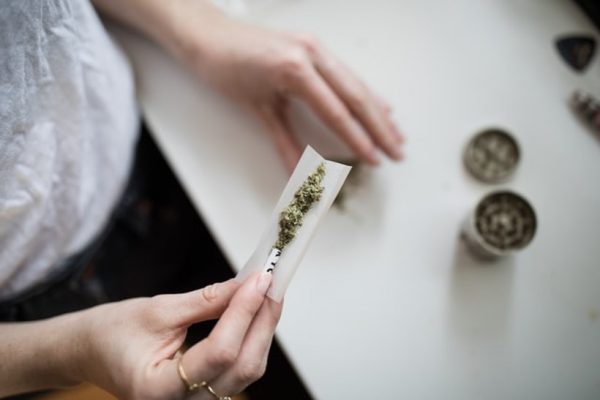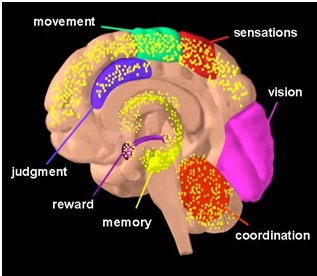
Drug abuse: Marijuana: What Parents Need to Know?
In today’s era, lots of information available online and everywhere. Yung mind can easily influenced by reading and listening to others. What seems to be bad can be tempting. People today learn about drugs while they are very young and might be tempted to try them. Teens say that marijuana (cannabis) is easy to get, and to be the first illegal drug they try. Marijuana use is often portrayed as harmless, but the truth is that marijuana is an addictive drug that can cause serious risks and consequences.
So, what is this Marijuana?
Marijuana refers to the dried leaves, flowers, stems, and seeds from the hemp plant, Cannabis sativa. It belongs to Cannabaceae family. The plant contains the mind-altering chemical delta-9-tetrahydrocannabinol (THC) and other related compounds. Extracts with high amounts of THC can also be made from the cannabis plant.
Street names for Marijuana are: Blunt, Bud, Dope, Ganja, Grass, Green, Herb, Joint, Mary Jane, Pot, Reefer, Sinsemilla, Skunk, Smoke, Trees, Weed; Hashish, Boom, Gangster, Hash, Hemp.
Marijuana is an addictive drug
Just like with alcohol, nicotine, and other illicit drug use, children who smoke marijuana can lose control over their use and become addicted. Many people overlook marijuana addiction because its withdrawal symptoms are not prominent or may not be present at all. However, withdrawal is only one symptom of addiction.
Teens who are addicted to marijuana likely smoke several times a week or more. Although most believe they are in control and can quit at any time, most cannot. Those using marijuana heavily often perform poorly in school or sports, lose interest in hobbies, and develop interpersonal problems with family and friends. Teens continuing to use marijuana into adulthood tend to have lower job achievement and less stable families than their siblings who don’t use drugs. As with alcohol, the younger a person is when starting marijuana use, the more likely she will become addicted.
Dabbing & Marijuana Extracts
Smoking THC-rich resins extracted from the marijuana plant is on the rise. Users use less potent parts of the cannabis plant to create concentrated butane hash oils (BHO), which are crystalized, then heated with a blowtorch, so that the vapors can be inhaled. Users call this practice dabbing. People are using various forms of extracts, such as:
- Hash oil or honey oil—a gooey liquid
- Wax or budder—a soft solid with a texture like lip balm
- Shatter—a hard, amber-colored solid
These extracts can deliver extremely large amounts of THC to users, and their use has sent some people to the emergency room. Another danger is in preparing these extracts, which usually involves butane (lighter fluid). A number of people who have used butane to make extracts at home have caused fires and explosions and have been seriously burned.
What is “High”?

Image : cross section of the brain with marked areas that are affected by THC.THC acts on numerous areas (in yellow) in the brain
THC acts on specific brain cell receptors that ordinarily react to natural THC-like chemicals in the brain. These natural chemicals play a role in normal brain development and function. Marijuana overactivates parts of the brain that contain the highest number of these receptors. This causes the “high” that users feel. Other effects include:
- altered senses (for example, seeing brighter colors)
- altered sense of time
- changes in mood
- impaired body movement
- difficulty with thinking and problem-solving
- impaired memory
Marijuana use affects health and well-being:
Mental effects
Long-term marijuana use has been linked to mental illness in some users, such as:
- temporary hallucinations—sensations and images that seem real though they are not
- temporary paranoia—extreme and unreasonable distrust of others
- worsening symptoms in patients with schizophrenia (a severe mental disorder with symptoms such as hallucinations, paranoia, and disorganized thinking)
- Marijuana use has also been linked to other mental health problems, such as:
- depression
- anxiety
- suicidal thoughts among teens
Other effects:
School
Marijuana users have a hard time thinking clearly, concentrating, remembering things, and solving problems. Frequent marijuana use often causes grades to drop. Users often lose interest in school and may quit.
Driving and physical activity
Marijuana impairs judgment, complex motor skills, and the ability to judge speed and time. Those who drive or take other risks after smoking marijuana are much more likely to be injured or killed.
Sexual health
Teens who smoke marijuana are more likely to take sexual risks and have unwanted or unprotected sex.
Long-term health
Teens’ bodies and brains are still growing and maturing, so smoking anything, including marijuana, is not good for lung health. Marijuana use may also lead to addiction or mental health problems.
Signs of marijuana use in children
Recognizing the signs of drug use is the first step in getting help for your child, but some signs are vague. Consider marijuana or other drug use if your child:
- Spends less time with family and friends and more time alone or away from home
- Change of friends , friendship with strangers and with much seniors to his or her age
- Often seems moody or irritable
- Begins to skip classes, often shows up late for school, or has a drop in grades
- Buys things like CDs and T-shirts with pro-marijuana messages or symbols
- Loses interest in hobbies
- Comes home high (talkative, giggly, red or glassy eyes) or goes straight to his room
- Smells of marijuana
- Possesses drugs or drug paraphernalia
As a parent what you can do?
As a parent, you are your child’s first and best protection against drug use. The following is information from the American Academy of Pediatrics (AAP) about marijuana and how to help your child say “No” to drug use.
Take these steps to help prevent your child from becoming interested in using marijuana or other drugs.
- Set high expectations and clear limits. Instill strong values. Let your child know that you expect her not to use drugs. Teach her healthy values that are important to your family and to use these values when deciding what is right and wrong.
- Talk with your child about the dangers of drug use, including marijuana. Young people who do not know the facts may try drugs just to see what they are like. Start talking with your child at an early age about the dangers of drug use. Encourage him to ask questions and tell you about his concerns. Be sure to really listen. Ask what he thinks about drug use and its risks.
- Use teachable moments. Discuss car accidents and other tragedies that are caused by drug use and are in the news or your child’s life.
- Help your child handle peer pressure. Peers and others can strongly influence young people to try drugs. Tell her that it is OK to say “No!” to risky behaviors and mean what she says. Help her find and spend time enjoying positive interests that build self-esteem.
- Help your child deal with emotions. Teens sometimes get depressed or anxious and might consider drug use to try to escape these feelings and forget problems. Explain that everyone has these feelings at times, so it is important for each person to learn how to express his feelings, cope with them, and face stressors in healthy ways that can help prevent or resolve problems.
- Set a good example. Avoid using tobacco and illicit drugs. Minimize alcohol use, and always avoid drinking and driving. Be a good role model in the ways you express, control, and relieve stress, pain, or tension. Actions do speak louder than words!
- Get a professional evaluation. If you think your child is using drugs, tell your child’s doctor your exact concerns. Your child’s doctor can help.
Get more information by visiting these sites:
1) Remember: There are many drugs available. However, marijuana as they say is easy to get. See other drug lists here: http://www.drugabuse.gov/drugs-abuse
2)https://ncadd.org/index.php/for-parents-overview/stories-from-parents
4)http://www.michaelshouse.com/drug-addiction/gateway-drugs-addiction-start/
5)http://www.foundationsrecoverynetwork.com/research-outcomes/
Image credit: Image credit: Photo by Thought Catalog on Unsplash (Free for commercial)
Author: Sumana Rao | Posted on: July 29, 2015
« Care about your Hair: Grandma’s way Meat Replacements – Plant based foods »






















Write a comment